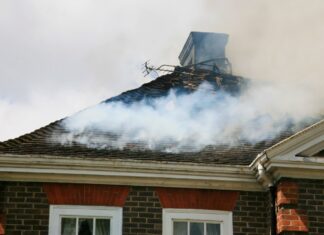
The recent heavy rainfall experienced by the area comes with the likelihood of an increased population of mosquitoes.
According to Dan Keashen, director of communications at Camden County, June was the second wettest ever in Camden County. More than 8.5 inches of rain has fallen since June 1.
“That rain and severe weather are really the catalyst for mosquito breeding,” Keashen said. “There’s a lot more standing water around the region through containers left out.”
According to a Camden County release, residents should check their property for any object that holds water for more than a few days. All pre-adult mosquito stages (eggs, larvae and pupae) must be in stagnant water to develop into adult mosquitoes.
Swimming pools are a common problem, the release said.
The county urges residents to check and maintain pools often to keep the area mosquito-free. Pool covers can catch rainwater and become a mosquito development site, but residents can add a little chlorine to kill mosquitoes.
With a new, larger mosquito population comes the threat of West Nile Virus, which is known to cause neurological problems in people that contract the disease.
“Our county mosquito commission checks a few thousand mosquito breeding sites on a regular basis. This keeps the mosquito population low and breaks up the cycles where diseases are spread from various animals to humans by a mosquito bite,” Freeholder Jeffrey Nash, liaison to the Camden County Mosquito Commission, said in the release.
According to the release, in previous years, tests of crows and other animals showed that West Nile Virus spread throughout the East Coast and was found in every county in New Jersey. West Nile Virus grows in birds, and is transmitted from bird to bird by infected mosquitoes. If mosquitoes infected with the virus bite horses or humans, they can also become sick. West Nile Virus generally causes no symptoms or mild flu-like symptoms. However, those older than 50, or those with a compromised immune system, are at a higher risk of more severe disease.
“It’s too early to tell how bad or good the West Nile Virus disease will be contracted this year,” Keashen said. “We usually get calls toward the end of the summer for West Nile Virus, which happened last year.”
Though the calls generally begin in late summer/early fall, the preventive actions to curb the population have started.
Sprayings have begun in the area and have been scheduled for Cherry Hill Township. According to the release, the mosquito spray is not harmful to humans or pets, but residents should avoid direct contact if you have respiratory concerns or are sensitive to irritants.
Additionally, the mosquito commission will be looking for problem areas throughout the county.
“We’re really counting on residents to be our eyes and ears in hazardous or places where mosquitoes breed,” Keashen said.
Residents can report standing water in their area, in addition to reporting deceased birds.
Residents may report dead crows and other select birds to the Camden County Department of Health and Human Services at (856) 374–6197. In previous years, testing by the state laboratory has helped track the spread of the virus. Crow collections may be phased out in select areas when enough of this evidence has been collected, the release said.









